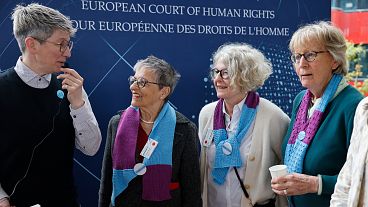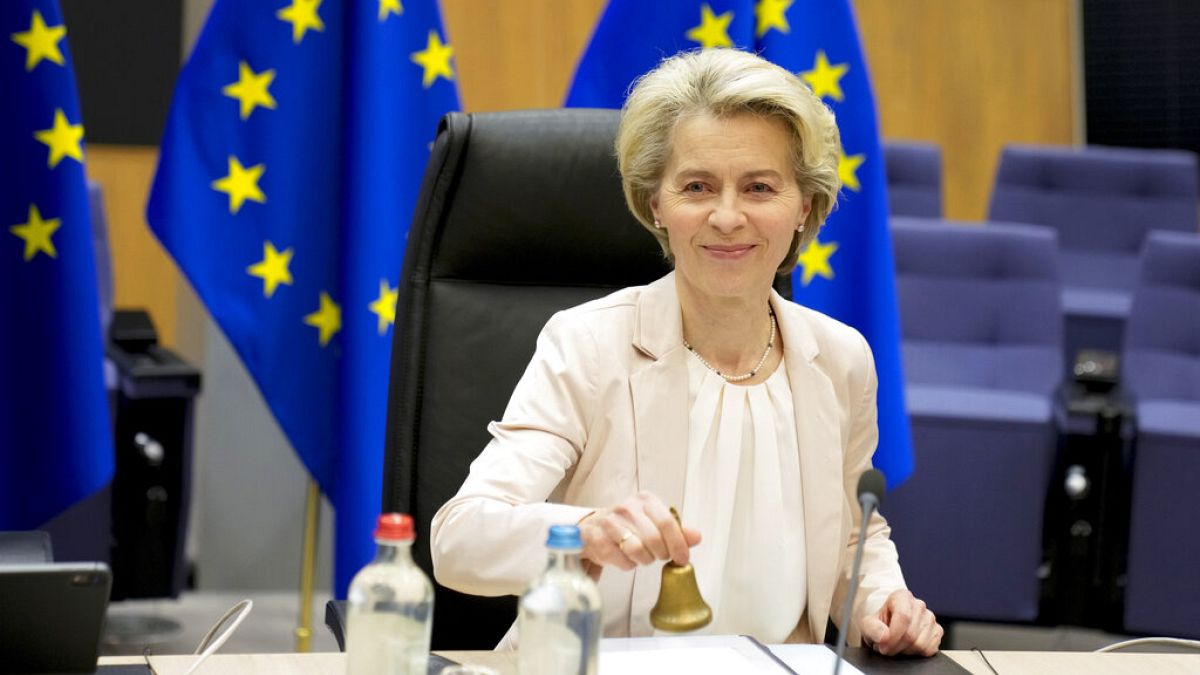Italy and the Czech Republic governments have already declared that they want their commissioners to be given big portfolios, a sign of their conviction that the conservatives' gains in the European elections should be reflected in the composition of the new EU executive.
European Commission chief Ursula von der Leyen might have a more difficult time putting together her list of commissioners the second time around, as ultra-conservative governments demand major roles for their candidates.
"The commissioners that Ursula von der Leyen will receive from member states will be much more diverse in terms of political opinions compared to the past, with more Eurosceptics in the portfolios," Johannes Greubel, political analyst at the Center for European Policy, told Euronews.
Italy and the Czech Republic governments have already declared that they want their commissioners to be given big portfolios.
Italian Prime Minister Giorgia Meloni of far-right Brothers of Italy has asked for an economy-related vice presidency, while her Czech right-wing counterpart Petr Fiala also said he wanted “a strong portfolio, preferably an economic one”.
It's a sign of their conviction that the conservatives' gains in the European elections should be reflected in the composition of the new EU executive.
The demands are also a reaction to the so-called cordon sanitaire of more mainstream and pro-EU parties against the extreme right, as shown in the choice of the institutions' leaders: von der Leyen came from the centre-right, the European Council president nominee António Costa is a socialist, and Kaja Kallas, the candidate chosen as the next EU foreign policy chief, is a liberal.
Hungarian Prime Minister Viktor Orbán will also use his good results at home, having even been the driving force behind a new radical right-wing group in the European Parliament, the Patriots for Europe (PfE).
Orbán has not yet announced whether he will retain incumbent Neighborhood and Enlargement Commissioner Olivér Várhelyi, or whether he will nominate someone else.
However, the same won't apply to the far-right coalition in the Netherlands, which wants to keep Wopke Hoekstra, a choice of former liberal PM Mark Rutte.
Hoekstra, the Commissioner for Climate Action, already thanked the current government led by Dick Schoof for the renewed confidence, on Tuesday, with a message on the social network X.
European Parliament to test nominees
Like in 2019, von der Leyen has asked all leaders to propose both male and female candidates to ensure gender balance in the final composition of the Commission.
However, the rules state that all potential commissioners must undergo hearings at the European Parliament to assess their background and skills, which can be a challenge, says Sophia Russack, a researcher at the Center for European Policy Studies.
"The European Parliament will invite all candidates for commissioner to their respective committees and ask many questions to test whether they are fit for the role," she told Euronews.
"In the end, the entire college of commissioners will have to be voted on by the plenary of the European Parliament, and this takes time because the Parliament also tries to flex its muscles a little and may reject one or even several commissioners," added the researcher.
During the negotiations, von der Leyen will also seek the best profile for the new portfolios highlighted in her speech to the European Parliament last week: defence, housing, and relations with the Mediterranean — especially in the context of migration.
In addition to Germany, where von der Leyen hails from, ten of the 27 member states have already indicated who they plan to nominate: France, Estonia, Finland, Ireland, Latvia, the Netherlands, Slovakia, Slovenia, Spain and Sweden.












